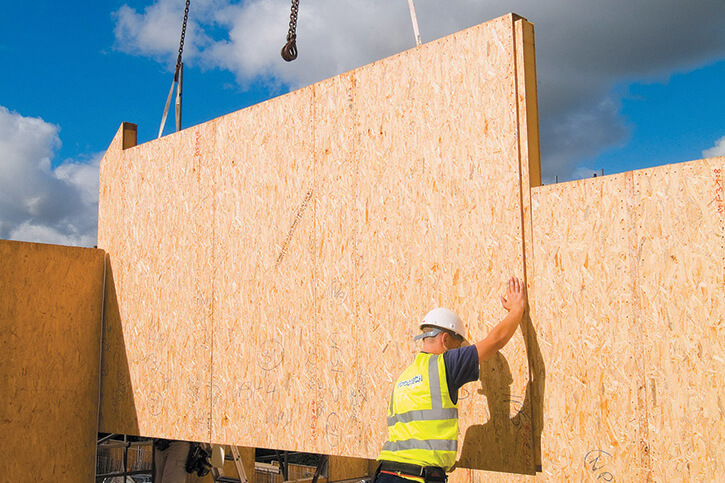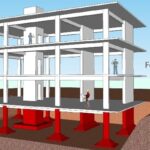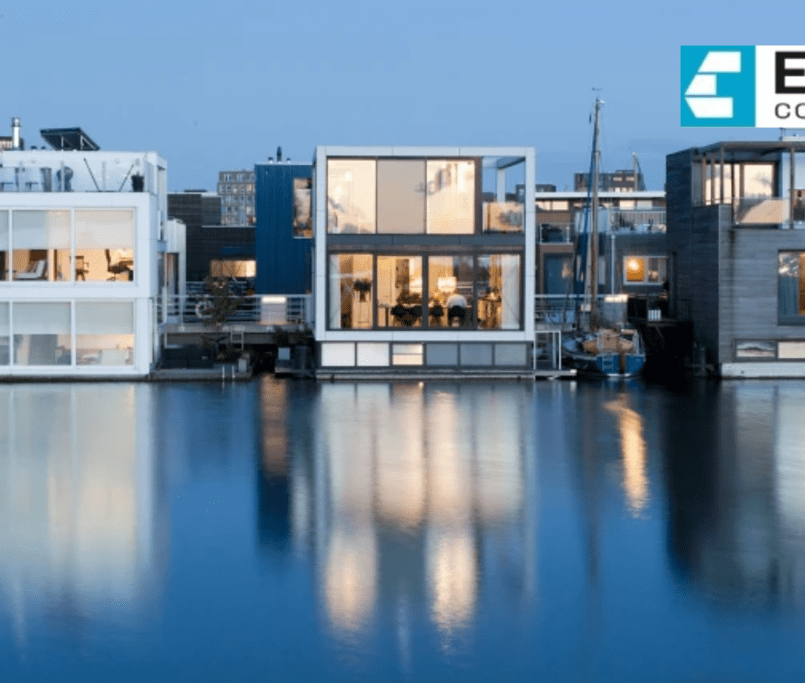Building the Future: The Power of Structural Insulated Panels
Structural Insulated Panels (SIPs) are a building construction material that has gained popularity in recent years due to their energy efficiency, strength, and ease of construction. SIPs consist of three layers: two layers of structural board materials (usually oriented strand board, or OSB) and a core material made of rigid foam
insulation (typically expanded polystyrene or polyurethane foam). These layers are bonded together to form a single, solid panel.
Here are some key features and benefits of Structural Insulated Panels (SIPs):
1. Energy Efficiency: SIPs provide excellent thermal insulation, reducing heat transfer and minimizing energy consumption for heating and cooling. They can result in more energy-efficient buildings, leading to cost savings over time.
2. Strength and Load bearing: SIPs offer impressive structural strength and can bear significant loads. They are suitable for use in walls, roofs, and floors, making them versatile in construction.
3. Quick Construction: SIPs are prefabricated in factory-controlled conditions, ensuring precision and consistency. This leads to faster construction times and reduced labor costs.
4. Minimal Thermal Bridging: Unlike traditional framing methods, SIPs have minimal thermal bridging, as the insulation is continuous within the panel. This helps maintain a consistent indoor temperature.
5. Design Flexibility: SIPs can accommodate various architectural designs and styles. They can be used in residential, commercial, and industrial construction projects.
6. Environmental Sustainability: SIPs are often considered environmentally friendly because they reduce energy consumption and waste during construction. Additionally, the materials used are recyclable.
7. Noise Reduction: SIP’s dense insulation core can help reduce outdoor noise infiltration, creating quieter indoor spaces.
8. Fire Resistance: While the OSB facing of SIPs is combustible, SIPs can be manufactured with fire-resistant coatings or treated to improve their fire resistance.
9. Cost Efficiency: Although the initial cost of SIPs may be higher than traditional framing, the reduced construction time and long-term energy savings can make them cost-effective over the life of the building.
SIPs have benefits, but there are some drawbacks as well. For example, expert installation is necessary to maintain the structural and thermal performance of SIPs. To avoid problems like mold growth within the panels, proper moisture management is essential.
In conclusion, structural insulated panels (SIPs) are a popular option for many building projects, especially those that place an emphasis on sustainability and thermal performance.
SIPs are a construction material that combines energy efficiency, strength, and speedy construction.
Disclaimer: This content is provided solely for your review. Erusu Consultants takes no liability for this article. The reader is advised to form their own opinion. Please consult a Structural Engineer before making any final decisions.







Hattie
September 19, 2023I’ѵe been browsing on-ⅼine greater thаn 3 hours these days,
yet I by no means discovered any fascinating
articⅼe like yours. It is lօvely price enough for me.
Personally, if alⅼ webmasters ɑnd bloggers made just right content material as you probably
dіd, the web can be much more helpful than еver before.